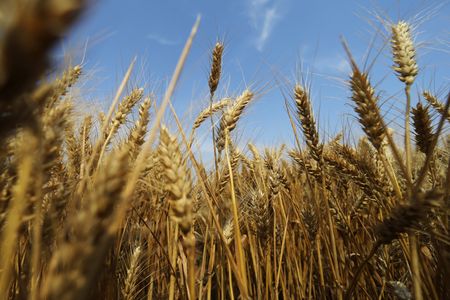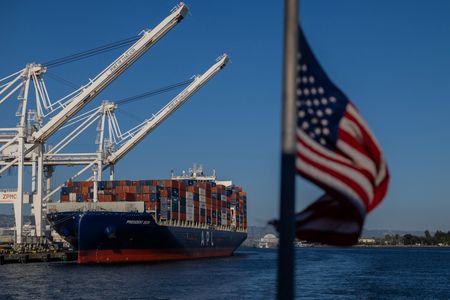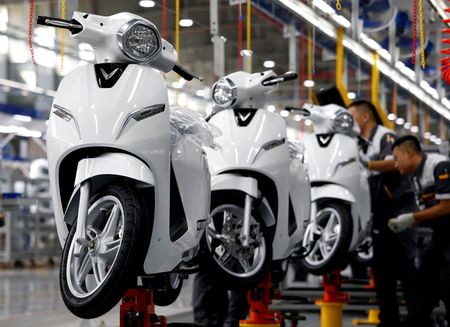BEIJING (Reuters) – China will accelerate the pace of agricultural and rural modernization and stabilise grain planting area in its quest to ensure stable and high production of grains, state media reported on Wednesday, citing an annual rural policy meeting.
The world’s biggest grains producer announced record grains production of 706.5 million metric tons this year, including 294.92 million tons of corn.
However, Beijing remains reliant on imports, making it determined to raise output and become an “agriculture power”, particularly as rising tensions with trade partners United States, Canada and the European Union threaten to disrupt food trade.
At an annual meeting that sets rural policy priorities for the year ahead, policymakers highlighted a need to improve farmers’ incomes and strengthen the use of agriculture science, technology and equipment.
“We must resolutely shoulder the important task of ensuring national food security… stabilize the grain planting area, deepen the action of increasing the yield of grain and oil crops on a large scale,” the official Xinhua news agency reported.
Policymakers said China will also improve the policy system for supporting grain production and improve the protection and quality of cultivated land.
In a separate meeting, China’s agriculture ministry pledged to take measures to “consolidate the results” of soybean and oilseed expansion, according to a ministry statement.
China has boosted its domestic soybean, corn and wheat production significantly in recent years by increasing planting acreage and raising yields through the use of high-yielding crop varieties.
However, higher supply amid weaker consumption due to an economic slowdown have led to lower prices.
Additionally, the agriculture ministry said it would optimise the pig production capacity control mechanism, and continue to follow up on the relief measures for beef cattle and the dairy industry, according to the statement.
The ministry will also implement food-saving actions in the farming industry.
This follows the declining prices of pork, beef, dairy and poultry in the world’s largest meat consumer due to shrinking demand in a slowing economy and an over-expansion by the livestock industry, especially among pig farmers.
Authorities have previously issued regulations to reduce the breeding sow population and control beef cattle production and vowed to stabilise prices.
(Reporting by Beijing newsroom; Editing by Tomasz Janowski and Jonathan Oatis)










